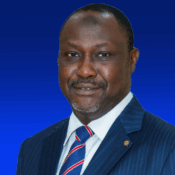
Putin sets a nuclear red line that the West must follow
Vladimir Putin has set a “red line” for the US and its allies, indicating that if they permit Ukraine to launch long-range Western missiles deep into Russian territory, Moscow may contemplate retaliating with nuclear weapons.
However, some in the West are questioning if he really means it.
The outcome of the war depends on the answer to this question. If Ukraine and some of its allies are right and Putin is bluffing, then the West might be prepared to step up military backing for Kyiv in spite of Moscow’s threats.
If he is sincere, there is a chance that the battle might escalate into World War Three, as Moscow and Washington have both said and admitted on multiple occasions.
Putin on Wednesday expanded the list of circumstances that could result in Russia deploying nuclear weapons, in the most recent of a lengthy string of cautionary remarks.
He suggested that it may respond in this way to a significant conventional strike that crosses international borders using drones, missiles, or airplanes. One would regard a rival nuclear power that backed a nation attacking Russia to be a party to that attack.
Both of those requirements clearly relate to the scenario that would emerge if the West permitted Ukraine to launch strikes deep within Russian territory using American ATACMS and British Storm Shadow long-range missiles. Putin has stated that such an operation would require assistance from Western satellites and targeting systems.
Former Soviet and Russian ambassador Nikolai Sokov remarked, “It was a very clear message: ‘Don’t make a mistake – all these kinds of things may mean nuclear war.”
The timing of Putin’s comments, according to nuclear analyst Bahram Ghiassee of the Henry Jackson Society think tank in London, is related to Ukraine’s lobbying of the West for long-range missiles and President Volodymyr Zelenskiy’s current meeting with U.S. President Joe Biden.
Ghiassee stated, “Putin is saying: just stop it right there.”
“NUCLEAR BLACKMAIL”
Putin was accused of “nuclear blackmail” by Zelenskiy’s chief of staff, prompting a prompt response from Kiev.
“This, in my view, is just another bluff and sign of Putin’s weakness. Former adviser to Ukraine’s minister of internal affairs Anton Gerashchenko stated on X that “he will not dare to use nuclear weapons because that will make him a complete outcast.”
According to U.S. Secretary of State Antony Blinken, Putin had been “rattling the nuclear sabre” for some time prior, and this threat was careless and ill-timed.
Putin is manipulating people, according to expert Andreas Umland of the Swedish Institute of International Affairs.
“This is a thinly veiled psychological PR stunt from the Kremlin. It’s intended to frighten citizens and officials in nations who back Ukraine,” he added.
Defense specialist and doctorate research fellow Fabian Hoffmann of Oslo stated that while he did not think Putin’s remarks could be disregarded, it was crucial to control oneself.
He stated on X that “Russian nuclear use is not imminent.” “Concern is warranted only when Russia signals actual preparations.”
According to Hoffmann, the next course of action may involve taking warheads out of storage and combining them with delivery vehicles for a limited-scope attack. This would be followed by intensifying the preparations for a nuclear attack on a broad scale by activating aircraft and readying silos, both of which would be detected by U.S. intelligence services.
“Talk is easy and has political impact, but evidence of actual willingness to use nuclear weapons is both absent and something we can detect if it ever happens,” Russia security specialist Mark Galeotti added.
THRESHOLD DECLINE
Putin did, however, provide greater detail than before regarding the conditions that can lead to the use of nuclear weapons. His spokesperson stated on Thursday that Putin intended for his remarks to serve as a warning to Western nations that engaging in strikes against Russia would have dire repercussions.
However, the announced adjustments were not as drastic as some hawkish pundits had been requesting. Sergei Karaganov, the most well-known of them, has advocated for a limited nuclear attack in Europe with the goal of “sobering up” Russia’s adversaries and forcing them to take its nuclear deterrent seriously.
Practically speaking, Belarus, a close friend, is now included inside Russia’s nuclear umbrella. They reduce the bar for using nuclear weapons by saying, for instance, that it might be used in retaliation for a conventional attack that presented a “critical threat to our sovereignty”.
Formerly, “the very existence of the state” was mentioned as being threatened by the nuclear doctrine.
In a four-minute video, Putin announced the move while speaking to the nine members of a security council that meets twice a year to discuss nuclear deterrent.
He claimed that using nuclear weapons was an extreme option and that Russia had always handled the situation sensibly.
Ministers and heads of intelligence listened carefully, rearranging papers or squirming now and then. Alexei Likhachev, the head of Rosatom, the state nuclear agency, was one of the participants who took thorough notes.
However, the actual recipients of Putin’s message were in London, Washington, and Kiev.
The main message of the updated doctrine, according to Russian political consultant Yevgeny Minchenko, is for the West and Ukraine to refrain from escalating the conflict into Russia.
He stated that the message was, “We will kill both your proxy and you if you try to kill us with your proxy’s hands.”
Former Kremlin advisor Sergei Markov claimed that the modifications made it possible for Russia to use tactical nuclear weapons on the battlefield in specific situations, such as against Ukraine.
“There is now less of a bar for using nuclear bombs. Russia will now be able to employ nuclear weapons more easily,” Markov stated on his official blog.
“The prospect of a complete escalation by the West was the driving force behind the revision of the nuclear doctrine. The West has confidence that Russia won’t launch a tactical nuclear strike first. Now, Russia claims to be prepared to do so.”
Markov stated that if Ukrainian airplanes conducted sorties from Romanian or Polish air bases and if Kyiv, supported by American or British satellite backup, deployed the jets to attack Moscow or areas of central Russia, Russia might be able to use tactical nuclear weapons against Ukraine or those bases.
“NO RESPECT”
Military analyst Igor Korotchenko, who frequently appears on state TV, claimed that the West had disregarded several prior warnings against further escalation, including Russian drills this summer that practiced the use of tactical nuclear weapons. As a result, the adjustments were deemed necessary.
“We see that Western adversaries no longer respect any ‘red lines’, believing that any acts to arm Ukraine and Western-assisted strikes against facilities deep inside Russian territory will not be met with nuclear escalation,” Korotchenko told the daily newspaper Izvestia.
Avatkov, who is a member of an official committee that advises Putin on foreign policy, claimed that Moscow was able to outsmart any Western decision regarding missiles for Ukraine by disclosing the modifications to the doctrine.
“Let them think now,” he stated on Telegram. “This is an attempt to restore the dread that they have lost totally, not only to warn them. and maybe even a little bit of strategic planning.”
The modifications sparked a debate about what would precipitate a nuclear retaliation and were warmly embraced by Russian nationalists and war bloggers, some of whom have long supported Moscow using nuclear weapons to compel a Ukrainian surrender.
Former president and deputy chairman of Russia’s Security Council Dmitry Medvedev issued a warning, saying that the West and Ukraine should take Putin’s remarks seriously.
“The very change in the regulatory conditions for our country’s use of nuclear components may cool the fervour of those opponents who have not yet lost their sense of self-preservation,” he stated in a statement.
“LIKE SMALL KIDS”
The former Russian diplomat, Sokov, added that Moscow was clearly frustrated that the West seemed to be blind to its repeated nuclear warnings.
He said that there were concerns in the media and among specialists that Western nations were not paying attention when Russia conducted three rounds of drills this year to mimic preparations for the launch of tactical nuclear missiles.
“So now they decided to strengthen the signal,” Sokov explained. “Putin decided the West is like small kids, and you have to explain every small thing because they just don’t get it.”
Sokov expressed alarm about “loose talk” among politicians and pundits who contend that Moscow’s warnings should be disregarded as the West has breached a number of Russian red lines with impunity, such as by giving Ukraine F-16 fighter jets and tanks.
He said that in actuality, the West had not yet crossed two red lines that Russia had made explicit: allowing Ukraine to launch Western long-range missiles into Russia and dispatching NATO forces to fight in that country.
He argued in a phone interview that such an approach was based on conjecture rather than facts, asking, “How can we say how (Putin) is going to react, if so, far we have not actually crossed any Russian red lines? “The reason I’m so worried about all the chitchat is that we’re diving headfirst into something that we know nothing about. You could be in for a very nasty surprise if you fail to account for the hazards.”
All Categories
Recent Posts
Tags
+13162306000
zoneyetu@yahoo.com



